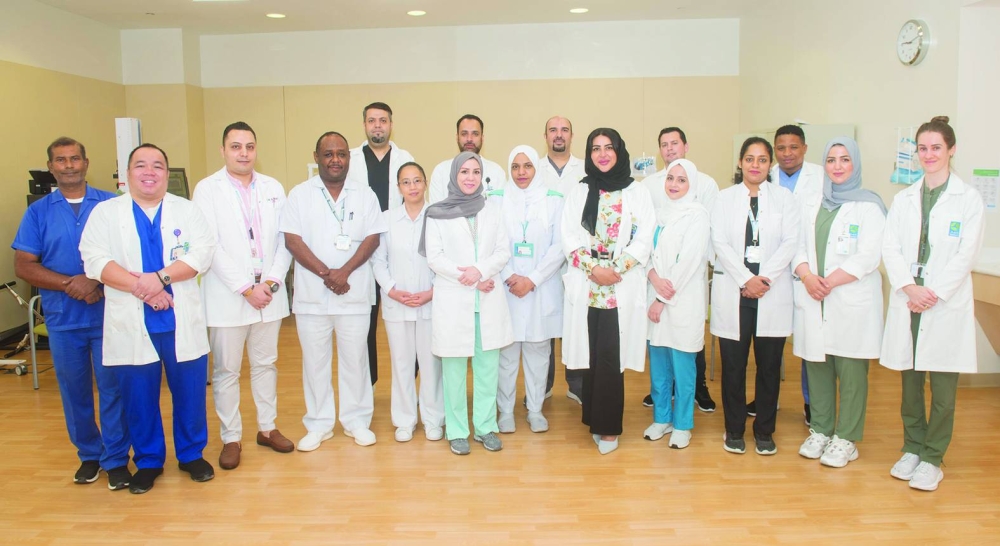The Return to Work Programme, part of the Daily Rehabilitation Unit at Qatar Rehabilitation Institute (QRI) at Hamad Medical Corporation (HMC), has successfully assisted and rehabilitated 124 patients to return to their primary work following a complete period of treatment and rehabilitation.
Dr Fatima al-Kuwari, consultant and acting chairperson of the Physical Medicine and Rehabilitation Department at QRI, said the Return to Work Programme was designed and initiated in 2021 to provide an individually tailored, comprehensive, multidisciplinary rehabilitation programme. This programme includes physical therapy, vocational therapy, speech and language therapy, and psychological therapy, all supervised by physicians specialising in physical medicine and rehabilitation. The programme focuses on helping patients return to their work either fully or with modifications, by addressing their physical and mental capabilities and communication skills.
"The programme includes patients referred from the inpatient department at QRI or from various departments across HMC facilities. These patients have completed their medical treatment and do not require nursing care after recovering from injuries, accidents, or strokes. After successfully completing the comprehensive rehabilitation programme, they are assisted in returning to their main jobs or helped in finding alternative positions within the same workplace that align with their current health conditions. This is done after communicating with their employers, as many have shown cooperation with these patients, Dr. al-Kuwari said.
Dr al-Kuwari said the programme includes some school and university students who were successfully reintegrated into their education after completing their treatment and rehabilitation. Communication was established with their schools and universities to create a suitable environment for them and to prepare their fellow students to be considerate.
Islam Bakri, physical therapy specialist at QRI, said the Return to Work Programme is divided into two stages: The first stage involves the the vocational rehabilitation programme and in this stage, the patient is trained in the daily rehabilitation unit for adults in vocational skills. The second stage, the transitional work programme focuses on all patients who have completed the first stage . Those eligible for the transitional work programme continue their rehabilitation in the daily rehabilitation unit for adults. The daycare rehabilitation team visits the workplace to assess the work environment and identify required work skills. Based on the results, necessary recommendations and workplace facilitations are provided, along with updating the patient's rehabilitation plan.
Saja Walid, occupational therapy specialist at QRI, said: “The patient is then trained in appropriate strategies to manage challenges related to their injury. The vocational therapy programme is designed according to the patient's job requirements, and the patient is trained in handling work demands. Among these skills are strengthening hand muscles, attention, focus, and perception skills, the ability to lift and carry heavy objects, writing, using computers, as well as communication and interaction skills.”
Dr al- Kuwari emphasised the importance of the speech and language therapist's role in dealing with cognitive communication disorders characterised by deficiencies in cognitive which may hinder employment, independence, and reintegration into society. The speech and language therapist plays a vital role in collaboration with the Return to Work Programme team in providing assessment, diagnosis, and treatment for individuals with cognitive communication disorders.

The Return to Work Programme team members.
